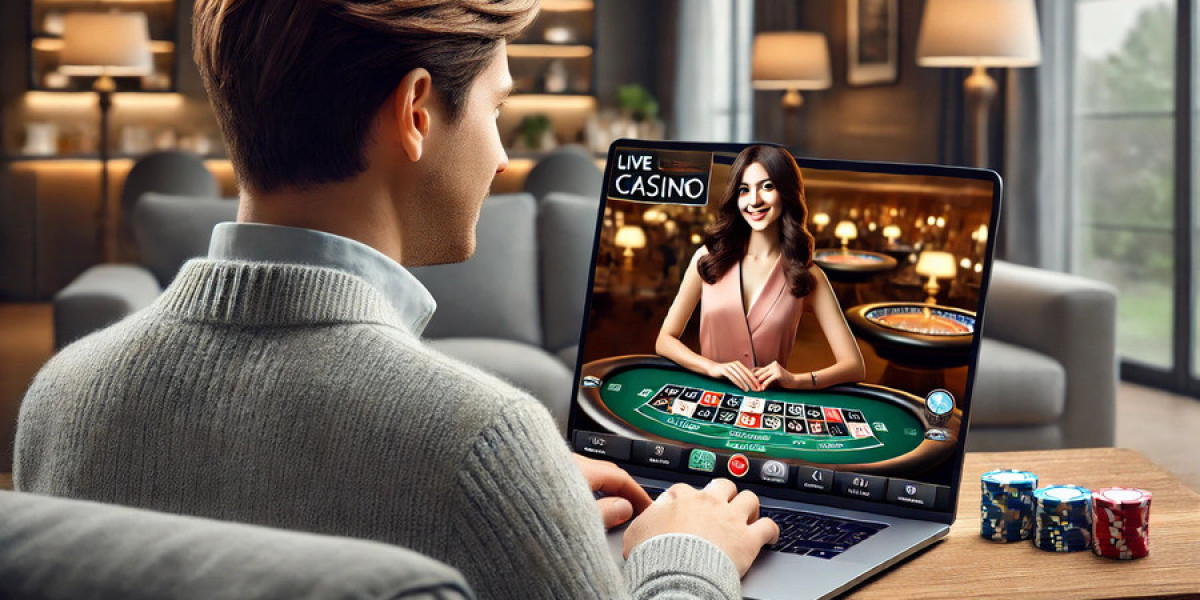The smiling faces of Paris Hilton and Ryan Seacrest made surprise looks before the Louisiana Senate for Friday's hearing on unlawful gambling.
No, they weren't personally in presence, but the world-famous celebs were notably consisted of in a slide discussion on social and sweepstakes casinos - the controversial websites offering both free casino-style video games and financially rewarding rewards, such as money, gift cards or cryptocurrency. In one advertisement, the fist-pumping Seacrest is seen plugging Chumba Casino, where anyone can 'bet free,' while a crop-topped Hilton holds a chip for sweepstakes operator, Wow Vegas, in the other.

The websites are simply 2 cogs in the multibillion-dollar market that now discovers itself besieged by suits. In the eyes of lots of video gaming corporations, not to point out lawsuit complainants and state regulators, sweepstakes gambling establishments function as traditional casinos, only without the oversight, consumer securities and tax laws. So not just can they avoid the high 24-percent federal sports betting levy, but sweepstakes operators aren't subject to regulative obstacles like anti-money laundering and responsible-gaming securities.
One operator, Australia-based Virtual Gaming Worlds (VGW), reported $4 billion in revenue last year alone. Now the company faces accusations of prohibited gambling in a New York lawsuit that declares VGW uses star endorsers to 'create a veneer of authenticity' around its item. (See VGW's declaration listed below)
'I'm not sure" if you don't trust us, you can trust Paris Hilton" is a winning message for business running multibillion-dollar unlawful operations out of places like Malta, Isle of Man, or US mail drops,' Friday's presenter, Howard Glaser of video gaming corporation Light & Wonder, told DailyMail.com.
Sweepstakes endorsers include a variety of celebrities from gambling lovers Drake and DJ Khaled to swimmer Michael Phelps, along with NBA stars Karl-Anthony Towns and Paul George - none of whom offer any differences between traditional gaming and sweepstakes play.
Paris Hilton is seen plugging Wow Vegas, one of many sweepstakes gambling establishments found online
Ryan Seacrest prompts fans to play at Chumba Casino, where many - but not all - games are free
Drake has a handle social sweeps casino, Stake, that he frequently touts on social networks
Find out more
Donald Trump 'set to call NBA group owner as US ambassador to Italy'
Instead, advertisements usually focus around the social element of the gambling establishments, while leaving out the capacity for actual gaming losses.
Others tempt customers with guarantees of prizes. One such operator, Stake, ran a social networks ad showing off Drake's cars, planes and estates before pivoting to video footage of the rap artist playing online casino-style video games.
'Daddy, why do we have a lot cash?' check out the first caption on the screen.
Another caption described: 'Because I never ever provided up.'
The disparity between gambling websites and social or sweepstakes casinos is a bit complicated, however operators of the latter insist they're not involved with the previous.
A spokesperson for a market trade group, the Social and Promotional Gaming Association (SPGA), explained its members are not in direct competitors with online casinos and sportsbooks. Furthermore, according to SPGA information, most of the gamers on social-sweepstakes casinos are playing for totally free.
'Most social sweeps customers never ever buy,' the SPGA spokesperson informed DailyMail.com. 'The minority of customers who make purchases do so in amounts far smaller than the common deposit or wager size at real-money online gaming websites.'
Social gambling establishments provide consumers a chance to play casino-style video games with pals. Players have the alternative to buy valueless currency typically described as 'gold coins,' which can not be exchanged for genuine money, but can be utilized to unlock numerous functions within the games.

But within the world of social gambling establishments exists sweepstakes video gaming, permitting consumers to acquire other currency understood as 'sweeps coins' that can be exchanged for cash or other prizes.
And therein lies the capacity for financial losses, like the ones claimed by plaintiffs in Florida, Georgia, New Jersey and New York City. One gamer told the Washington Post he lost more than $100,000 on sweepstakes casinos in the previous year after continuing to purchase more coins in pursuit of cash and other things of worth.
The Philadelphia 76ers' Paul George is seen promoting a Worldwide Poker occasion
Social sweeps gambling establishment Stake ran an advertisement showing off Drake's cars, aircrafts and mansions
Karl-Anthony Towns of the New York City Knicks is another NBA star plugging VGW's Global Poker
Traditional online casinos are banned in all but 7 states, which has assisted to sustain the appeal of sweepstakes casinos.
Anyone over the age of 18 can access the sweepstakes websites, which don't need generally need recognition. However, websites like Chumba will request IDs from gamers attempting to withdraw any funds.
Many websites, like the crypto-compatible Stake, allow customers to send mail-in ask for free sweeps coins, provided the gamers follow painfully specific instructions. What's more, gamers are often rewarded with sweeps coins just for registering, thereby providing a factor to try their hands at any variety of casino video games for a possibility to win - or lose - real cash.
So why are sweepstakes sites permitted to operate in 48 states, while online gambling establishments are prohibited in all but 7?
According to the stakeholders, their item is the totally free casino-style gaming, and the real-stakes competitors is simply a method of promoting their bread and butter.
'Social sweepstakes video games are simply a type of online entertainment,' an SPGA representative told DailyMail.com by e-mail. 'No purchase is required to play at social casinos with sweepstakes rewards. Consumers never ever have to spend for an opportunity to win prizes. That lack of a purchase requirement - or" consideration" - is an essential distinction in between social sweeps and standard online sports betting websites like gambling establishments.'
Think about the manner in which McDonald's utilizes its annual Monopoly video game to promote its food: Customers aren't paying to bet, but rather they're buying hamburgers and fries that offer them the possibility to win financially rewarding rewards, such as a $1 million prize.
And without a purchase requirement, or 'factor to consider', the video game itself doesn't meet the definition of sports betting in the US.
'Sweepstakes are a long-standing technique for promoting all kinds of everyday companies in the United States, whatever from hamburgers to magazine memberships to coffee and home enhancement shops,' the SPGA spokesperson informed DailyMail.com. 'Sweepstakes promotions are routinely used by a who's who of home names like AT&T, Chase, Home Depot, Marriott, Starbucks, and Wal-Mart.'
But to many sports betting industry insiders, that argument does not cut it.
For beginners, video gaming lawyer Daniel Wallach points out, McDonald's Monopoly game does not run indefinitely. Rather, it has a well-defined start and end, consequently recommending the sweepstakes is not the fast-food giant's primary product. Instead, the sweepstakes is being utilized to promote genuine products like fries, shakes, and the Filet-O-Fish.
'They don't last forever and they're typically not tied to casino-style games of possibility,' Wallach told DailyMail.com. 'They're simply cash free gifts.
'The sweepstakes [gambling establishments] possess none of the attributes commonly associated with McDonald's-design sweepstakes promotions,' Wallach continued. 'Besides running in eternity, the sweepstakes gambling establishments offer" casino-like" payouts, usually 80 percent or more of profits, whereas the common payout portion for a short-lived promotional sweepstakes is an unimportant share of the profits earned by the business [normally less than one percent]'
Wallach is fast to compare the online social sweeps casinos to the internet cafes that sprang up in Florida, using clients the possibility to play casino-style games for real prizes. Many of those brick-and-mortar establishments have since been shuttered over accusations of illegal sports betting.
DJ Khaled is amongst a number of celeb spokespeople for VGW's Global Poker brand name
Now, Wallach argues, social sweeps casinos should deal with similar analysis.
'These differences are not arbitrary,' Wallach said of social sweeps casinos. 'They have consistently been pointed out by courts and state attorney generals as crucial consider determining that a sweepstakes promotion was in fact a guise for illegal gaming.'

One of the casino market's leading trade companies, the American Gaming Association, is now pushing legislators to investigate sweepstakes operators and, in some cases, enact brand-new legislation on the concern.
'Consumers are being denied of defenses and states are forgoing substantial tax and profits chances as this gaming replaces that conducted through regulated channels,' read a well-circulated AGA memo.
And then there are the plaintiffs who have sued social casinos in more than a lots states.
Sweepstakes gambling establishment operators paid a combined $14.2 million in four different cases in Kentucky without confessing any misbehavior, according to the Washington Post. Meanwhile VGW accepted pay $11.75 million in one class-action lawsuit, stating the settlement was made to prevent legal costs and continued litigation.
Michael Phelps has signed a handle the VGW Group, which owns Global Poker
In the newest claim, which is largely similar to its predecessors, New york city state citizens Lamar Prater and Rebecca Pratt both claim to have lost well over $1,000 to VGW, which is explained in the filing as an 'prohibited gaming enterprise. '
Apple and Google have likewise been named as accuseds in suits for hosting the sweepstakes sites. But unlike VGW, neither tech business reacted to DailyMail.com's ask for comment.
'We normally do not discuss matters before the courts,' a VGW spokesperson informed DailyMail.com via e-mail. 'However, we note that this claim has only simply been filed with the court and VGW has actually not been officially served.
'We have full self-confidence in our compliance with all laws and regulations where we run, and stay confident about the future,' the representative continued. 'We continue to provide our free-to-play video games across many of The United States and Canada, as we have for more than a decade, creating not only excellent video games, user experiences and entertainment, but likewise guaranteeing this is done safely, properly and at the highest level of standards.
'More broadly, we 'd repeat that class actions and other litigations and arbitrations are reasonably typical across the online social video games industry (and the US more broadly), and our basic practice is that we mean to intensely safeguard any claim which may be brought against us.'
The concerns between conventional online sports betting and sweepstakes casinos might prove bothersome for some celeb endorsers.
Towns, a star center with the Knicks, and the 76ers' George both endorse VGW's Global Poker brand while the NBA is partnered with traditional video gaming titans like FanDuel and DraftKings.
'It's paradoxical that professional athletes are hawking illegal sports betting wagering 'sweeps' websites while at the very same time the leagues want to forecast a strong position versus illegal gaming - especially when trying to tamp down the periodic gaming scandal,' Glaser told DailyMail.com.
It was simply eight months ago that Toronto Raptors forward Jontay Porter got a life time restriction from the NBA over claims he conspired with gamblers. However, to be clear, Porter's scandal is unrelated to anything including social or sweepstakes casinos.
Along with VGW, Apple and Google are being sued for hosting allegedly prohibited gambling websites
Regardless, Glaser sees sweepstakes gambling establishments as a significant problem for leagues such as the NBA.
'I 'd anticipate that a league crackdown on athletes endorsing sweepstakes websites is a matter of when, not if,' Glaser added.
Neither an NBA spokesperson nor the gamers' representatives reacted to DailyMail.com's requests for remark. For that matter, spokespeople for Drake, DJ Khaled, Hilton, Seacrest and Phelps likewise disregarded to react to DailyMail.com e-mails.
Asked if their star endorsers have an obligation to describe to clients the distinctions and resemblances in between iGaming and sweepstakes gambling establishments, VGW firmly insisted there is nothing more that needs to be done.
'We have complete self-confidence in our influencer and ambassadorial partnerships, and our business practices more broadly,' the representative said. 'Some of our worths are" our gamers precede" and" we do what's right", and we put our worths at the core of whatever we do.'
Glaser, an outspoken opponent of sweepstakes websites, sees things in a different way.
'Celebrities who provide their names to shady unlawful gaming sites are, at a minimum, putting their track records at risk as well as courting civil and class actions by consumers who declare damage,' Glaser stated. 'There is likewise some threat that state regulators and state chief law officers rope star endorsers into enforcement efforts for facilitating illegal sports betting.'
New YorkNBADrakeParis Hilton




